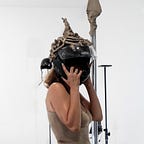Film — socialization & solidarity
When we talk about film as an agent of socialization, we must have in mind that film is primarily an artifact of culture and as such implies the field of culture as a field of social interaction. Culture would thus, in the broadest sense, represent a series of habits, beliefs, value systems, norms and rules, that are passed down from generation to generation or adopted through institutions and media. In that way film, not only as a work of art, i.e. the form of artistic expression, but also as a tool of mass communication, significantly influences the process of socialization. Through both dimensions, aesthetic and social, film influences value creation (political views, social engagements), identity formation (gender and religion), behavior and lifestyle (outsider, influencer) and educational patterns (cognitive, social or cultural skills). Film narratives influence the everyday perception of social reality and participate in building established mythologies.
Thus, for example, films about superheroes (Batman, Superman, Wonderwoman, Justice League) form the belief that an individual, in addition to supernatural abilities, can possess virtues such as courage, determination and a fighting spirit, which allow him or her to resist various forms of injustice and fight for the justice in the society as whole. On this example, we could see that the archetype of the superhero plays an important role in the process of socialization by influencing beliefs, expectations, convictions and by building an individual identity that is put in service for the greater good of the collective. At the same time, but on the opposite side of the hero stands antihero (Joker, Catwoman, Poison Ivy, Venom) who teaches us that negative and malignant actions are inevitably punished and sanctioned. This easy cineaesthetic dualism creates a value system in which oppositions effectively take part in the further rooting of social norms.
On the other hand, there are films that are more complex in portraying and structuring of normative behavior. One of them is Joker, directed by Todd Phillips, starring Joaquin Phoenix. We mainly know the Joker as the opponent of Batman, a character who, unlike Batman, works to destroy, not save, the established system and order in the imagined city of Gotham. But Joker played by Joaquin Phoenix is anything but a simplified nihilist who wants to turn the lives of decent citizens into a nightmare. This social drama turns the story of the antihero upside-down, not only by giving a Joker a lead role, but also by re-examining the reasons why and how antiheros are created. The main focus of the story is a poor, traumatized and mentally ill clown, who serves as a mockery and punching bag for “normative” citizens. Always in the wrong place at the wrong time, this loner is a total loser in the world of liberal capitalism and represents the opposite of the guy that lives the American dream. He is incompetent, clumsy, uneducated, unarticulated, unsuccessful, unloved, unfit, lives on welfare with his equally mentally ill mother, has no father, no friends, and on top of it all no sense of humor. Completely destroyed, in the moment in which he gets beaten by three young men from Wall Street, he decides to defend himself for the first time and kills his perpetrators. But this film, which won the Golden Lion at the 76th Venice Film Festival, is much more than a precisely created psychological profile of a deviant individual. More than anything, this is a film about unsuccessful socialization, a film about a child’s body subjected to social terror, about class division, inequality and struggle. A film about mass media and manipulation, politics, capital and corruption. A film about social revolt, unsuccessful revolution, violence, apathy, unrest and finally a film about the twentieth century, a century that we all believe we left behind us. In the artistic sense and from the point of craftmanship, Joker is full of skillfully placed metaphors that question the pillars of modern liberal-capitalism (for example, on the plates of the police car that takes Joker away says Industry first or the background of the film sequences count down to one, marking the final birth of Joker’s alter ego) and which resonate masterfully in the Joker’s sentence: “Nobody thinks what it’s like to be the other guy.” Because, it is precisely the Otherness that is the most undesirable characteristic of social being in the totality of contemporary world.
Emotional and cognitive experience of the film, teach us that the traumatization of the Other, which very often occurs in the period of childhood and young age, has a decisive influence on the formation of personality and character. And even wider, that the modern society in which we live is woven and saddled with a web of traumatic events, all negatively affecting the formation of, not only deviant personality types, but also the formation of the society in general. We can thus freely conclude that in the field of contemporary social action and interaction the main credo is lack of solidarity. The one that Hannah Arendt spoke about in her book Men in dark times, when she said: “This negative solidarity, based on the fear of global destruction, has its correspondence in a less articulate, but no less potent, apprehension that the solidarity of mankind can be meaningful in a positive sense only if it is coupled with political responsibility. Our political concepts, according to which we have to assume responsibility for all public affairs within our reach regardless of personal “guilt”, because we are held responsible as citizens for everything that our government does in the name of the country, may lead us into an intolerable situation of global responsibility. The solidarity of mankind may well turn out to be an unbearable burden, and it is not surprising that the common reactions to it are political apathy, isolationist nationalism, or desperate rebellion against all powers that be rather than enthusiasm or a desire for a revival of humanism.”
